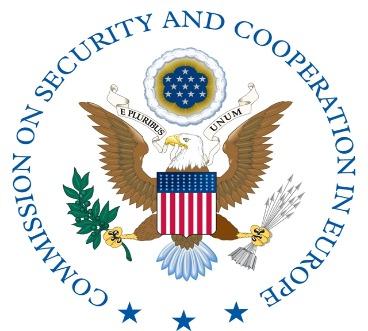By Alex Tiersky, Senior Policy Advisor
and Kyle Parker, Senior Senate Staff Representative
On June 6, 1944, universally known as “D-Day,” history was forever altered by the largest multi-national amphibious landing and operational military airdrop in history. On that day, approximately 160,000 Allied troops, supported by more than 5,000 ships and 13,000 aircraft, braved the withering fire of Nazi Germany’s fortifications on the beaches of Normandy to gain a foothold in continental Europe, commencing in earnest the liberation of Europe and the end of Adolf Hitler’s Nazi regime.
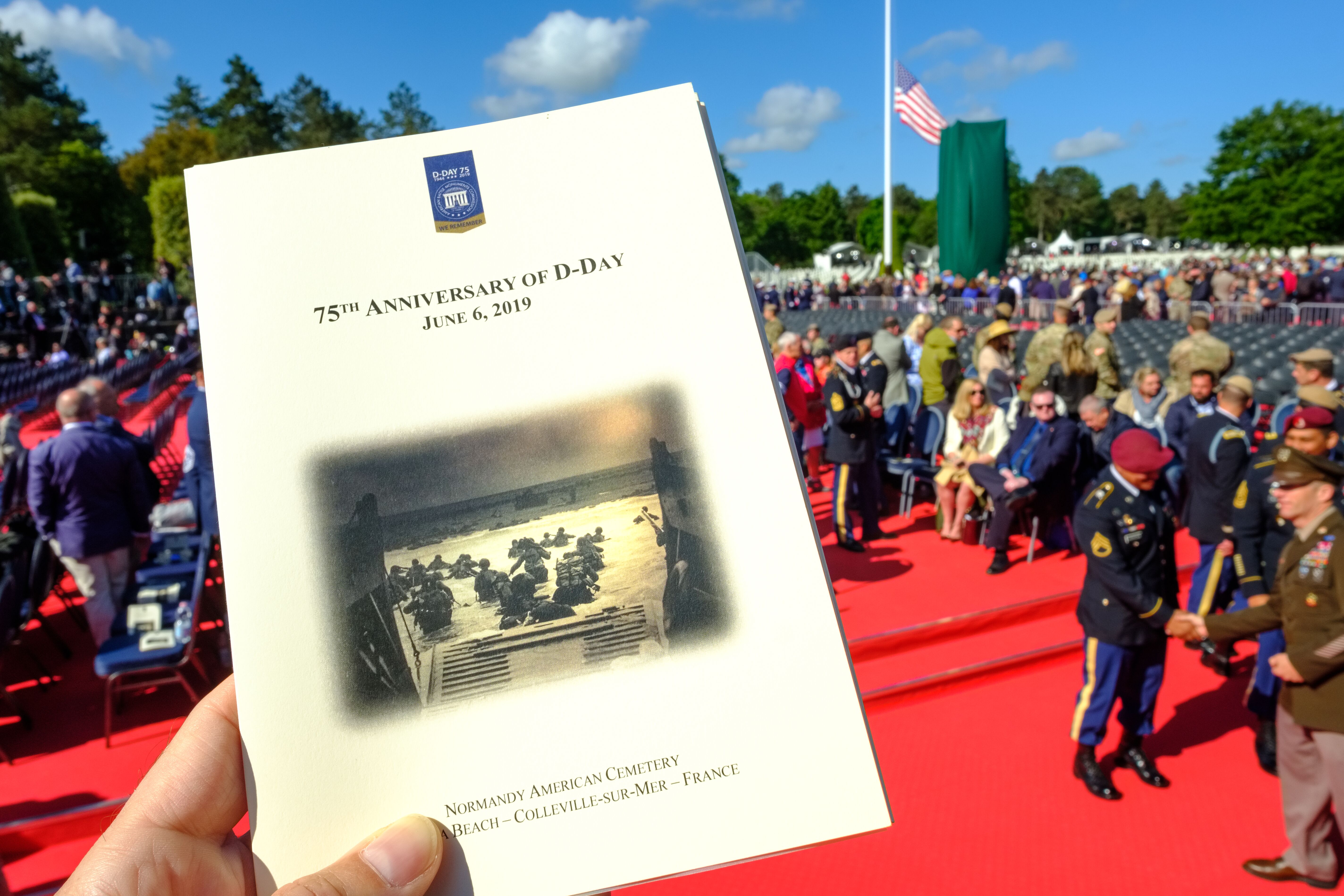
The program for the June 6 Ceremony for the 75th Anniversary of D-Day, Normandy American Cemetery, Omaha Beach, Colleville-sur-Mer, France.
Members and staff of the U.S. Helsinki Commission traveled to Normandy to commemorate the 75th anniversary of that momentous day and to honor the bravery and sacrifice of more than 9,000 Allied Soldiers who were killed or wounded in the assault.
The presence of members of Helsinki Commission leadership, including Co-Chairman Sen. Roger Wicker and Ranking Member Sen. Ben Cardin, attested to the continued strength of the transatlantic bond cemented by this seminal event.Their presence underlined once again the continued U.S. commitment to European security, and to promoting freedom, justice, and peace in the OSCE region and beyond.
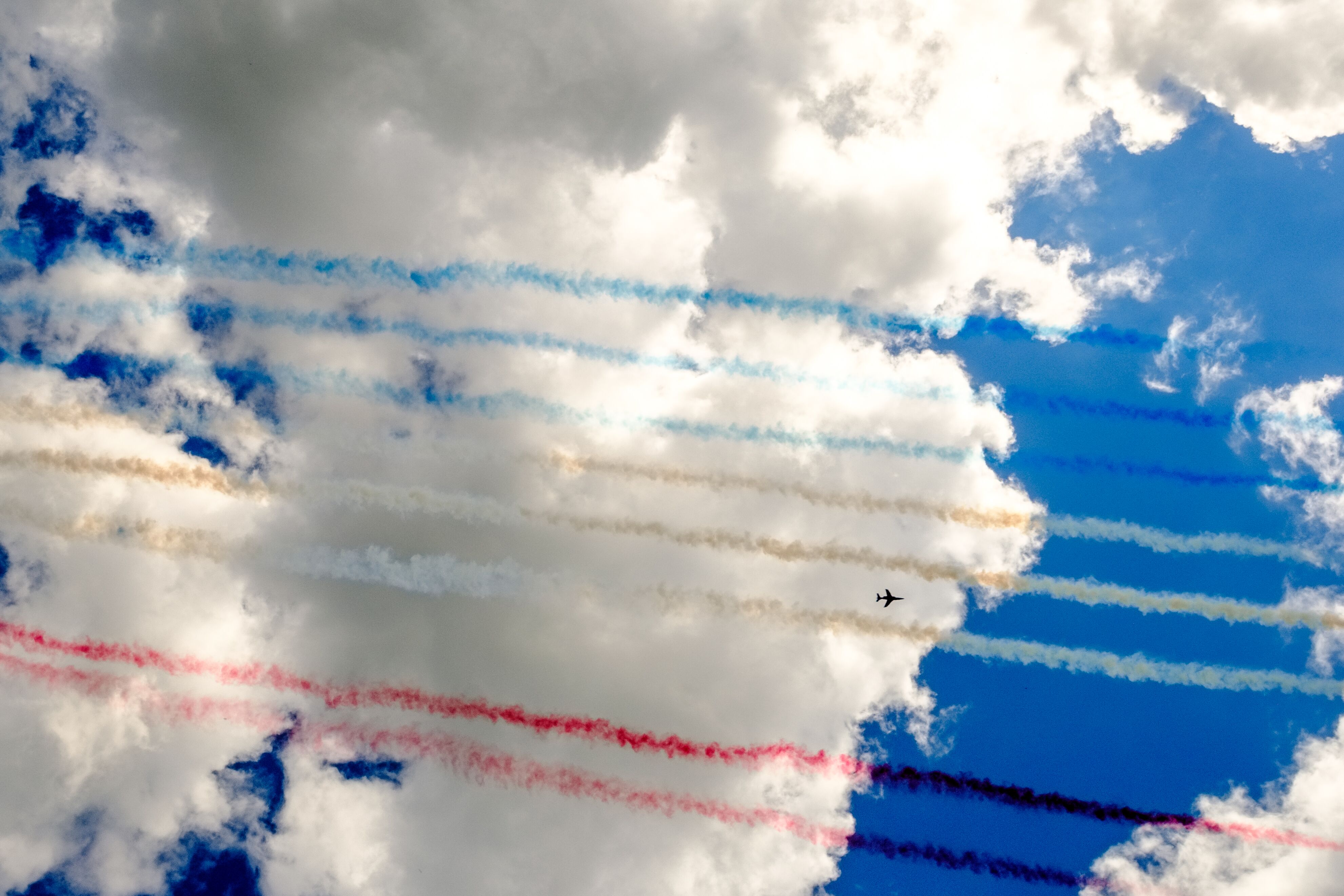
Army flight formation as part of the D-Day commemoration.
The 2019 anniversary took on special resonance, as it is likely to be the last major opportunity for D-Day veterans—now in their mid-90s and older—to participate.
Commission representatives began the morning of June 6, 2019 with a ceremony at the Normandy American Cemetery at Colleville-sur-Mer. The hallowed ground, which sits on a cliff overlooking Omaha Beach, contains the graves of more than 9,380 of American soldiers, most of whom lost their lives in the D-Day landings and ensuing operations.
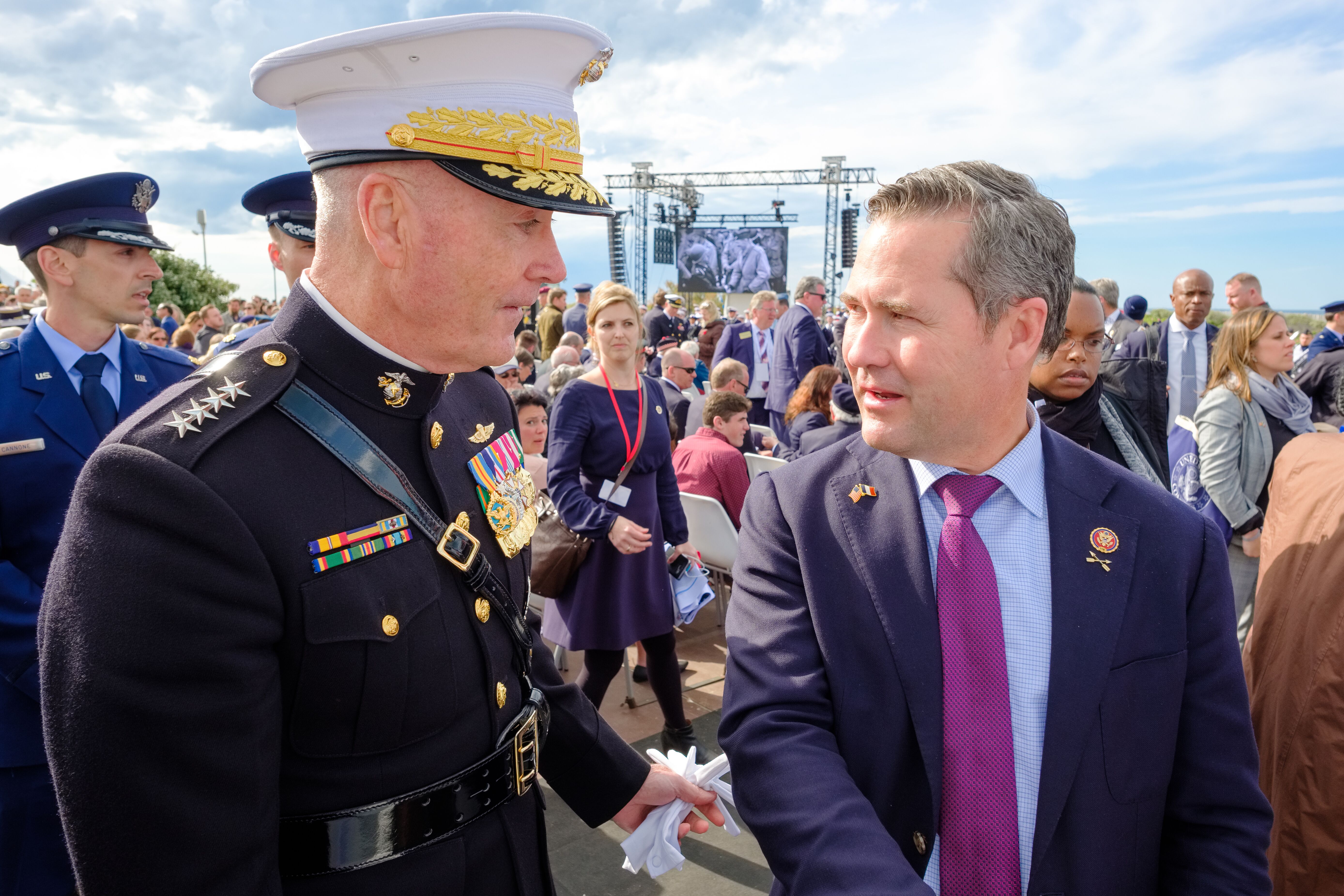
Left, General Dunford, Chairman of Joint Chiefs speaks to Representative Michael Waltz (FL-06).
At the ceremony, Helsinki Commission Co-Chairman U.S. Senator Roger F. Wicker recalled being moved by President Trump’s remarks. As Senator Wicker recently relayed at a hearing in Gdansk, “Under no circumstance can we be divided from our friends and allies, here or anywhere else. I was reminded of this key principle when I participated in the commemoration of the 75th anniversary of D-Day in Normandy. I am certain all of my colleagues are unanimous in their agreement with the sentiment President Trump expressed on that occasion: “To all of our friends and partners: Our cherished alliance was forged in the heat of battle, tested in the trials of war, and proven in the blessings of peace. Our bond is unbreakable.”
A particularly poignant moment of the ceremony saw French President Macron turning to face several dozen veterans of that fateful day 75 years ago to tell them in their native tongue, “We know what we owe to you, veterans: our freedom. And on behalf of my nation I just want to say thank you.”
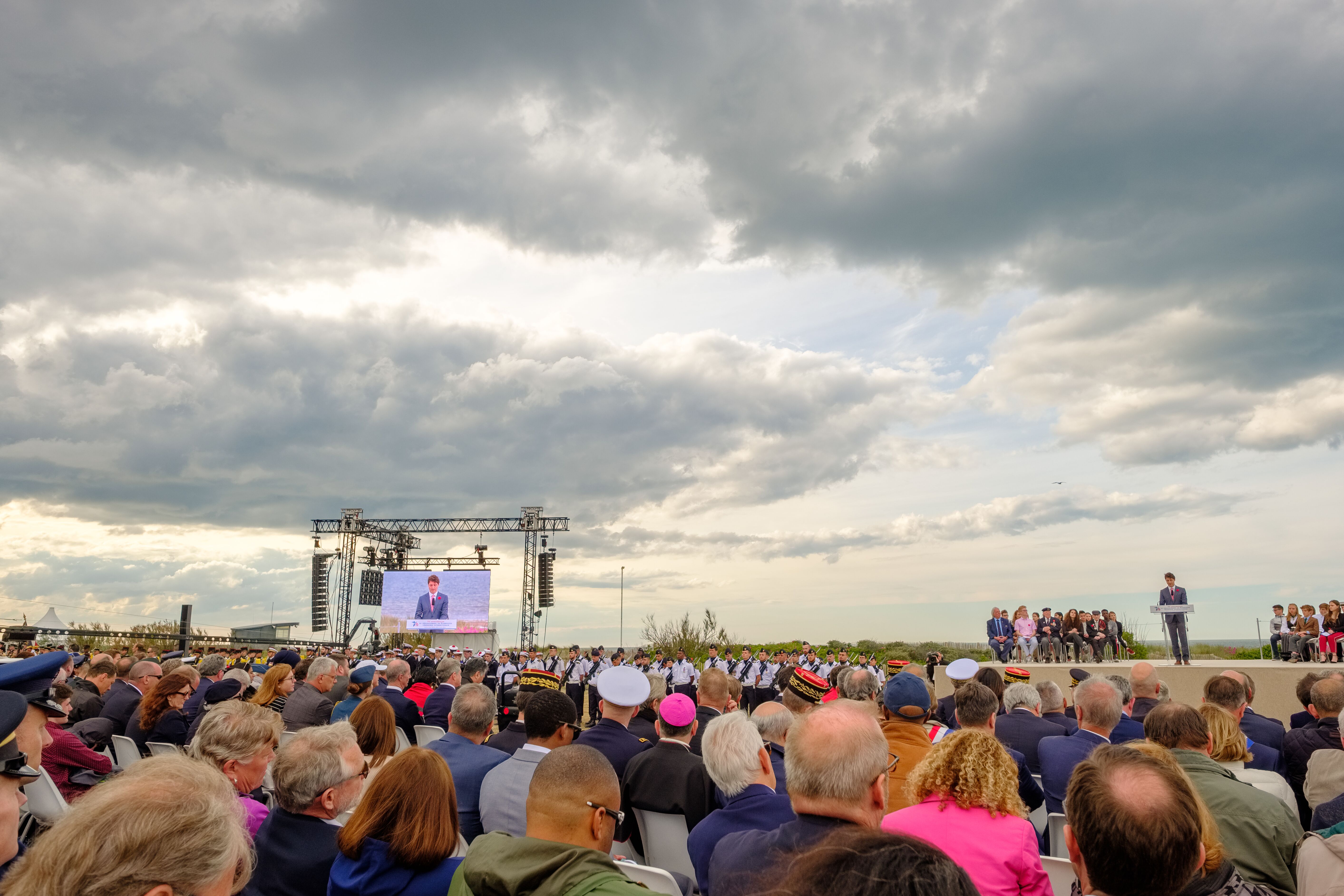
Canadian Prime Minister Trudeau speaks at the Juno Beach ceremony.
Later on June 6, Commission representatives took part in a second ceremony, this one at Juno Beach (Courseulles-sur-Mer), where some 21,000 men (14,000 Canadian and 7,000 British) had landed 75 years before. The ceremony, presided over by French Prime Minister Édouard Philippe (in the presence of Speaker of the United States House of Representatives Nancy Pelosi and Canadian Prime Minister Justin Trudeau, among other dignitaries), featured solemn remarks from senior officials. However, perhaps most moving were a series of personal reflections from school-age children on the meaning of war, peace, and memory. Their innocent sincerity offered possibly the greatest tribute to what the heroes of D-Day fought and died for.






